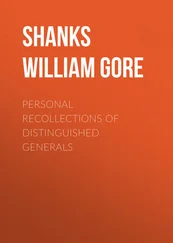The transcripts offer a major opportunity to research the complexity of mentalities, in this case of Wehrmacht soldiers. Normative approaches that intend only to confirm previously existing opinions will not bring about any advances in knowledge. So let us not deprive these sources of their complex, contradictory character. And let us ask ourselves above all what commonalities and differences there are between Wehrmacht soldiers and the armies of other times and other countries.
Sönke Neitzel, 2013
1. Observations on Research and Sources
After World War II, the German generals largely rejected criticism of their role in the Third Reich and sought refuge in an alibi which said that they had fought an honourable war, had either scant or no knowledge of major atrocities, and that the military defeat was due mainly to Hitler’s meddling at High Command level. The extent to which publications by former generals [1] Of the numerous publications of this kind, one could mention for example: Siewert, ‘Schuldig?’.
shaped the image of the Wehrmacht for German postwar society remained, until recently, unexplored empirically. It emerges now, however, that as early as the 1950s public opinion and individual officers held a view of the Third Reich generals which did not coincide with that of ‘an unblemished Wehrmacht’. [2] Searle, ‘Wehrmacht Generals’, p. 282.
The work of the Personnel Special Studies Committee of the Bundeswehr demonstrates that from the earliest days of the Federal Republic the military has been more critical of its past than have judges, doctors or government administrators, while avoiding any major autopsy on its ranks. This is hardly surprising in view of the wartime devastation and the prevailing unsympathetic attitude of the public towards the Wehrmacht generals.
The historical research of the 1950s and 1960s was obliged to rely on accounts, primarily memoirs and approximately 2,500 reports dating from 1946–48, the result of an invitation by the US Army Historical Division to high-ranking Wehrmacht officers to write about their experiences at the front. [3] Amongst them were more than 300 generals. For the full context see Wegner, ‘Erschriebene Siege’.
Only when the official documentation was returned to West Germany in the 1970s [4] See additionally Eckert, ‘Kampf um die Akten’.
was an evaluation of the role of the Wehrmacht and its senior commanders during World War II possible. Despite the great bulk of files, no comprehensive picture of the generals emerged, for the papers related mainly to military operations. Insight into the commanders of an army, or into Army-Group Staff, is rarely to be gained from official war diaries, operational planning and situation analysis. Private opinions on directives from ‘above’, about political convictions or pretended ‘military necessities’ are not documented in official papers and thus remain hidden from the historian. [5] One is accordingly obliged to work with circumstantial evidence, which may be controversial, e.g. see recently Hürter, ‘Militäropposition’, and the riposte, Ringshausen, ‘Paraphen’.
To get round this impasse the historian must fall back on letters and diaries. Such material tends to be scanty and by reason of being in private hands is often of only limited accessibility. [6] The Bundesarchiv/Militärarchiv at Freiburg has few legacies from former Wehrmacht generals providing detailed information about the war period, although the quantity of material is greater than that of the other two services. The diaries of Franz Halder were an early central source of Army history. Other important collections remain in private hands, e.g. letters and diaries of Generalfeldmarschall von Manstein.
The extent to which a military commander saw through the tangled web of politics and war crimes, what he knew, what he suspected, what he refused to face up to, these remain misty to the present day, and only in the odd individual case can one get to the truth of the matter. [7] See e.g. Hartmann, ‘Halder’, Clasen, ‘Reinhardt’. Johannes Hürter discusses this problem in his collective biographical study ‘Die deutschen Oberbefehlshaber an der Ostfront 1941/42’ . His book ‘Gotthard Heinrici’ provided a very revealing insight into Heinrici.
Our knowledge of what senior military personalities thought and knew is thus restricted. Admiral Dönitz, for example, knew from naval officers’ reports about mass shootings on the Eastern Front but how he dealt with this information, how he interpreted it and what inferences he drew from it can only be surmised. [8] Author’s interview with former naval surgeon at Ijmuiden, Stabsarzt Dr Hans Lauterbach, November 1994. The difficulty here is that Dönitz left no private notes about his wartime service. For further aspects of the problem see also Ruschenbusch, ‘Dönitz’, Kraus, ‘Dönitz’.
The London Public Record Office (PRO), since recently home to the British National Archive, is the repository of a vast wealth of material on the Wehrmacht and Third Reich which awaits thorough research, the transcripts relating to the secret monitoring of private conversations between German senior officers in British captivity being a case in point. In contrast to the interrogation of prisoners of war, in which the truthfulness of the subject’s replies may be doubtful, [9] Rafael Zagovec, in ‘Das Deutsche Reich und der Zweite Weltkrieg’, Vol. 9/2, pp. 289–381, deals comprehensively with the Western Allies’ interrogations of German prisoners. From this he shows that information about the morale of German soldiers was gained but makes no mention that the British were eavesdropping on their prisoners over a long period.
the private unguarded conversations of German prisoners provide a true insight into their world of thinking and experience, since their guard was down.
The reproduction of this fascinating source allows us to clarify many important questions. How did German generals judge the general war situation? From what date did they consider the war lost? How did they react to the attempt on Hitler’s life in July 1944? What knowledge did they have of atrocities, either through their own experience or based on the reports of others? What importance did these explosive themes have on camp life? Were there differences of opinion, or enmity between individuals, perhaps conflict between the generations? To what extent was rank or front-line experience important?
The Combined Services Detailed Interrogation Centre (CSDIC UK) transcripts declassified in 1996 have been virtually ignored by researchers. Occasionally the monitored conversations of U-boat crews are mentioned in naval studies [10] Gannon, ‘Black May’, pp. 334–83, provides a selection of eavesdropped protocols from the period March to August 1943. Blair, ‘Der U-Boot Krieg’, Vol. 2, p. 949, produces protocols from American camp sources.
but the files relating to Staff officers are practically untouched. [11] Among the few to use this source are Schmidt, ‘Rudolf Hess’, p. 328: protocol SRGG 1236, 20.5.1945, TNA WO 208/4170 (Karl Bodenschatz on Hitler’s reaction to Hess’s defection) and Hoffmann, ‘Staatsstreich’, p. 913: protocol SRGG 1219, 15.5.1945, TNA WO 208/4170 (Karl Bodenschatz speaking to an RAF officer about the 20 July plot), both recorded at Latimer House (Luftwaffe overspill unit). Also Toliver/Constable, ‘Galland’, pp. 307–11; Irving, ‘Tragödie der deutschen Laftwaffe’, p. 373f. Irving posted Document 135 on an internet site and refers in his biography of Hitler, ‘Führer und Reichskanzler’, to protocol SRGG 1133 (TNA WO 208/4169) of which he gives a summary. Graf Rothkirch has never described killing Jews himself.
The author first drew attention to these in the Vierteljahrsheften für Zeitgeschichte where, for reasons of space, a selection of only 21 documents was reproduced. [12] Neitzel, ‘Deutsche Generäle’.
The 167 reports reproduced in this book are the transcripts of conversations between German generals in British captivity from the late summer of 1942 to the autumn of 1945. With four exceptions they were all recorded at Trent Park, the special centre set aside for German Staff officers. Documents 76, 77 and 135 recall conversations of generals Walter Bruns and Maximilian Siry overheard in April and May 1945 at Latimer House, Buckinghamshire, a time when for accommodation reasons not all captured Staff officers could be settled at Trent Park. Document 152, also from Latimer House, is the record of a conversation between two General Staff majors captured in August 1944 in France who speak out on the general war situation while still influenced by the attempt on Hitler’s life. This report is very valuable in that there exist few extracts of conversations concerning general political questions [13] Files TNA WO 208/4138 and 4139 contain the transcripts of prisoners captured at Normandy, an especially fruitful source of information for historians.
at the time of the fighting in Normandy and so provides an interesting contrast to the opinions of the generals already in custody.
Читать дальше
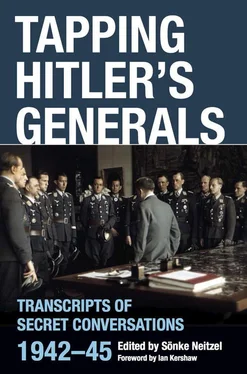

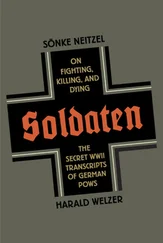
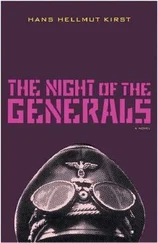


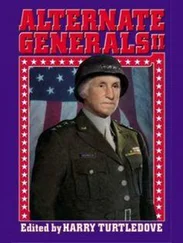

![Traudl Junge - Hitler's Last Secretary - A Firsthand Account of Life with Hitler [aka Until the Final Hour]](/books/416681/traudl-junge-hitler-s-last-secretary-a-firsthand-thumb.webp)



